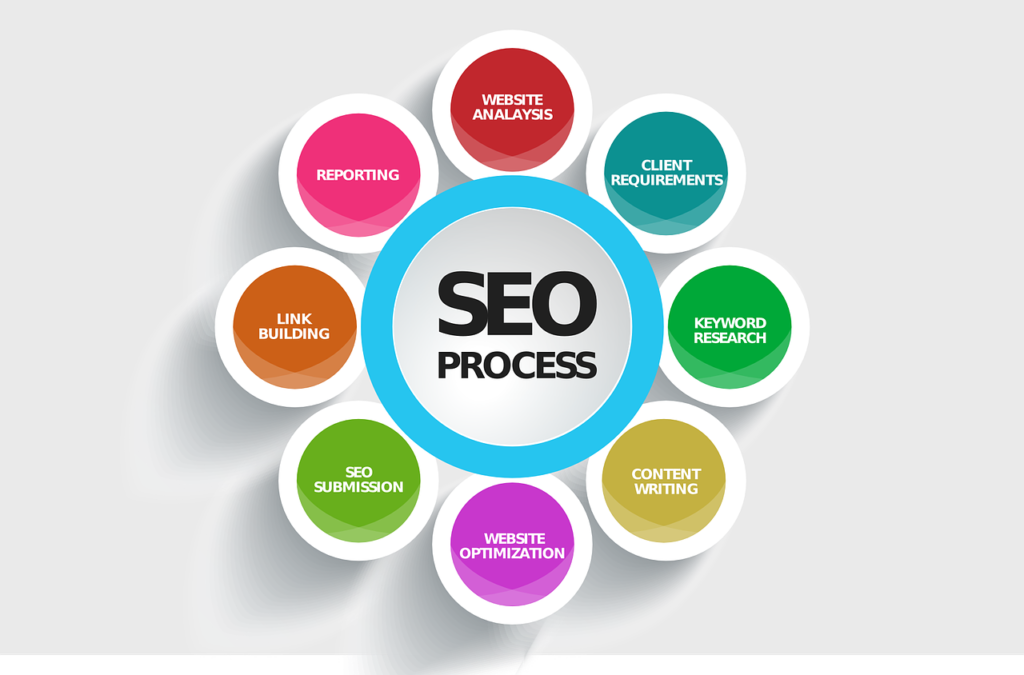In today’s digital landscape, understanding the ins and outs of Search Engine Optimisation (SEO) is more crucial than ever for Kiwi businesses aiming to boost their online presence. As a trusted advisor, this guide will simplify the SEO basics and serve as your go-to resource for enhancing your search engine ranking. With a focus on small to medium-sized enterprises in New Zealand, we’ll unravel the importance of SEO as a key component of your digital marketing strategy.
Are you ready to embark on this journey and uncover how effective SEO strategies, including on-page optimisation, can transform your business growth? Let’s dive into the essentials of SEO for beginners and pave the way for your online success.
Understanding SEO Basics
What is Search Engine Optimisation?
Search Engine Optimisation, or SEO, is a digital marketing practice aimed at enhancing a website’s visibility on search engines like Google. By optimising various elements of a website, businesses can improve their search engine ranking, making it easier for potential customers to find them online. SEO involves both on-page optimisation, such as keyword usage and content quality, and off-page tactics like backlinks and social media activity.
For Kiwi businesses, understanding SEO basics is essential to boost online presence and compete effectively in the digital marketplace. Incorporating SEO strategies can lead to increased traffic, better user engagement, and ultimately, more conversions. Think of SEO as the roadmap guiding users to your digital storefront, ensuring they find you amidst the vast online landscape. By mastering SEO for beginners, businesses can create a solid foundation for long-term growth and success.
Why SEO Matters for Businesses
SEO is crucial for businesses because it directly impacts their online visibility and accessibility to potential customers. In today’s highly competitive digital marketplace, standing out is key to attracting and retaining customers. Effective SEO strategies help businesses appear in the top search results, where users are most likely to click. This not only boosts online presence but also drives targeted traffic to your website.
Moreover, SEO builds credibility and trust with users, as higher search engine rankings often equate to perceived authority and reliability. For small to medium-sized enterprises, particularly in New Zealand, leveraging SEO basics can level the playing field against larger competitors.
By understanding and implementing SEO strategies, businesses can improve their search engine ranking, enhance user experience, and ultimately increase conversions and sales. In essence, the importance of SEO lies in its ability to foster sustainable business growth and success in the digital age.
Key SEO Strategies to Implement
- Implementing effective SEO strategies helps improve search rankings and drive quality traffic.
- Use relevant keywords in content, titles, and meta descriptions.
- Create high-quality, engaging content to reduce bounce rates.
- Enhance technical SEO for a better user experience.
- Ensure fast load times, mobile-friendliness, and HTTPS security.
- Build quality backlinks and stay active on social media.
- Focus on local SEO for businesses in New Zealand.
- Optimise your Google My Business profile.
- Encourage customer reviews to boost local search visibility.
- Following these SEO basics builds a strong digital marketing foundation.

On-Page Optimisation Techniques
Crafting Effective Meta Descriptions
Meta descriptions are brief summaries of web pages that appear beneath the title in search engine results. Crafting effective meta descriptions is crucial because they influence click-through rates and can impact your search engine ranking. An ideal meta description should be concise, usually between 150-160 characters, and should include relevant keywords that align with the user’s search intent.
Importantly, it should offer a clear and compelling reason for users to click through to your site. For instance, if you run a local café in Wellington, a meta description could highlight unique offerings, like, “Discover Wellington’s finest coffee and homemade pastries. Visit us for a unique café experience.” This not only incorporates keywords but also appeals to potential visitors. Remember, while meta descriptions don’t directly affect rankings, they play a pivotal role in attracting web traffic. Regularly reviewing and updating them can enhance your digital marketing efforts by boosting online presence effectively.
Importance of Keywords in Content
Keywords are a fundamental element of on-page optimisation, playing a crucial role in connecting your content with search engine queries. By strategically incorporating relevant keywords into your content, you can improve your search engine ranking and boost online presence. Keywords should be naturally integrated into various parts of your webpage, including headings, body content, and even image alt-text.
However, it’s vital to maintain a balance—overloading your content with keywords, known as keyword stuffing, can lead to penalties from search engines. Instead, focus on delivering valuable content that answers users’ questions or solves their problems while weaving in keywords seamlessly. For instance, if your business sells eco-friendly products in New Zealand, using phrases like “sustainable products in New Zealand” can attract a targeted audience interested in eco-friendly options. Effective keyword usage not only helps in SEO but also enhances user experience by making your content more relevant and engaging.
Enhancing User Experience on Your Site
Enhancing user experience (UX) is a critical aspect of on-page optimisation that can significantly influence your search engine ranking. A positive UX keeps visitors engaged, encourages longer site visits, and reduces bounce rates, all of which are factors that search engines consider when ranking websites. To improve UX, ensure your site is easy to navigate with a clear structure and intuitive menus.
Additionally, optimise your site’s loading speed; slow page loads can frustrate users and lead them to leave your site. Implement a responsive design to ensure your website functions seamlessly across all devices, including mobiles and tablets. This is particularly important as mobile searches continue to rise. Furthermore, use high-quality images and engaging multimedia to enhance content appeal, but be mindful of their impact on load times. By focusing on these elements, you create an inviting environment that encourages users to explore your offerings, ultimately boosting your digital marketing efforts.
